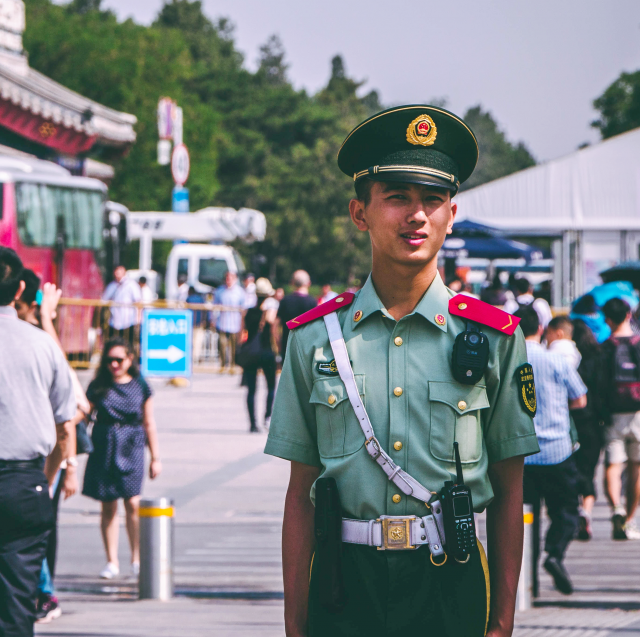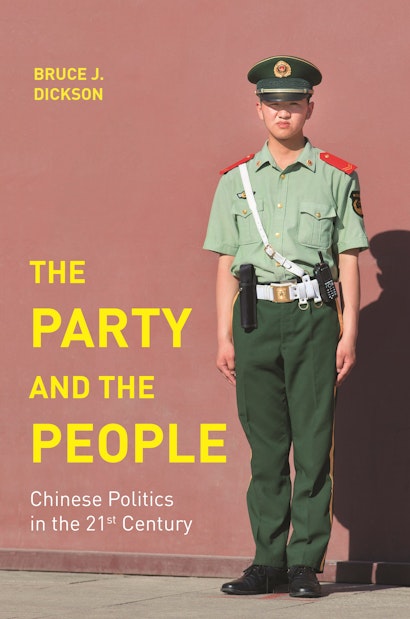What should we make of a political system that is often repressive and not accountable to its people in elections, and yet can also be responsive to public opinion? That is the paradox of China’s political system in the twenty-first century.
That the party in China is repressive is widely recognized. We frequently hear about the harsh treatment of the Uighurs and other ethnic minorities in Xinjiang, the arrest of dissidents, the increased pressure on Hong Kong, and other heavy-handed tactics. Under the leadership of the Chinese Communist Party (CCP), China’s political system has the common features of a Leninist regime, including no organized opposition, tight control over the policy process, a network of party cells throughout the state and society to monitor compliance with the party line, and suppression of ethnic minorities in favor of a uniform national identity. The party zealously protects its monopoly on political organization against anyone it perceives as a threat, real or imagined. Given these enduring realities of Chinese politics, the use of repression is no surprise.
That the CCP is also responsive to the public is less well known. Its policy process is shrouded in secrecy on politically sensitive issues, but it also solicits the opinions of experts and regular citizens on most pending legislation and major regulations before final passage. It is wary of civil society and religious groups that may challenge the party’s authority, but local officials often tolerate and even cooperate with groups that provide disaster relief, poverty alleviation, job training, and other social welfare goods and services. Its policies of rapid economic growth produced extensive environmental damage, but it has cleaned up the air in major cities and become a global leader in renewable energy after attracting international attention and domestic outrage over severe pollution. It engages in corrupt land grabs in order to turn farmland and urban housing into industrial and commercial projects, but also abandons plans to build dams, chemical plants, and high-speed rail systems in the face of not-in-my-backyard protests. It punishes the leaders of public protests, but also pays compensation to aggrieved individuals and groups.
Why would the CCP be willing to be responsive to public opinion if it is not accountable to voters? There are several reasons, all central to the CCP’s strategy for survival. First, maintaining stability is a primary requirement for local officials, whose prospects for promotion can be jeopardized if protests happen on their watch. Many local officials use “stability maintenance funds” primarily intended for police and security forces, i.e., the repressive arm of the state, to make financial payments to people who have lost their job, their homes, or in other ways are harmed by party policies.
Second, the CCP wants to avoid a nationwide protest movement as occurred in 1989. Similar grievances exist in many areas throughout the country. The party wants to avoid having protests spread from one place to another like a wildfire.
Finally, the party wants to pre-empt demands for democracy. Remarkably, most Chinese believe their political system is increasingly democratic. How can that be? They do not define democracy in terms of the election of leaders, civil rights, or the rule of law, but in terms of good governance. From their perspective, improving standards of living and party policies that benefit the public make their country more and more democratic. That is not how people living in democracies would define it, but popular perceptions of democracy in China reinforce the party’s willingness to be responsive.
This responsiveness is more apparent on some issues, in some regions of the country, and at some points in time than others. In particular, since Xi Jinping became China’s leader in 2012, the pendulum has swung decisively away from responsiveness and toward repression. Can the party continue to ratchet up repression in dealing with protests and criticism, or will relying more and more on repression eventually trigger a backlash from the people?
The party faces no viable opposition. Several decades of rapid growth have produced an increasingly prosperous society, patriotism, and popular support. The CCP long ago gave up the Marxist dream of a communist utopia but remains committed to a traditional one-party Leninist regime. Although China’s leaders have made economic modernization their key task from the late 1970s onwards, they never allowed economic reform to threaten the party’s monopoly on political power. That was the tragic lesson of the popular demonstrations in Tiananmen Square in 1989. Efforts to create more autonomy, if not outright independence, in Tibet and Xinjiang have led to recurring crackdowns. In 2008, an online petition to create a more democratic system led to the immediate arrest of China’s best-known dissident, Liu Xiaobo, who won the Nobel Peace Prize in 2010 but died in 2017 soon after being released from prison on medical parole.
The CCP has survived as China’s ruling party for over 70 years because it was built on Leninist organizational principles and continues to abide by them. By combining the traditional networks of party cells throughout state and society with modern surveillance technology, the CCP is now able to intersect with and monitor China’s rapidly changing society in ways it never could before.
To understand politics in today’s China, we must understand the trajectory of political reforms over the past few decades, highlighting what has changed and what has not. The central fact of Chinese politics—it is a one-party regime in which the CCP does not tolerate challenges to its monopoly on power—has not changed. But its policy priorities, decision-making processes, and relationship to society has changed fundamentally in the post-Mao era and continues to evolve.
Repression and responsiveness: that is the paradox of China’s political system that defines the relationship between the party and the people and will determine the continued longevity of the CCP as China’s ruling party.
Bruce J. Dickson is professor of political science and international affairs and chair of the Department of Political Science at George Washington University. His many books include The Dictator’s Dilemma and Allies of the State. He lives in Vienna, Virginia.

